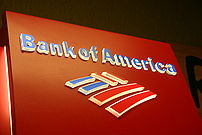Allowing Lehman Brothers to collapse had such severe systemic effects that the global financial system went into cardiac arrest and is still dealing with the aftermath.
How do we set up a sytem to eliminate the risk of (another) global financial meltdown? In their FT.com article
'A proposal to prevent wholesale financial failure'
, NYU Stern students Lasse Pedersen and Nouriel Roubini
have devised a way to avoid the "worst financial crisis since the Great Depression."
Bail-outs of major financial institutions are based on a fear that their collapse would cause havoc, with collateral damage to the real economy. Examples include the Bear Stearns, Fannie, Freddie, AIG, and Citigroup.
The current system is "vulnerable to financial contagion when big banks (or many small ones) go bust. This is the systemic risk.
The root of this problem is that "banks have little incentive to take into account the costs they impose on the wider economy" if their failure prompts a liquidity crisis. "This is akin to when a company pollutes as part of its production without incurring the full costs of this pollution. To prevent this, pollution is regulated and taxed."
How do we reduce both the moral hazard and the cost of bail-outs in the event of a liquidity crisis? Impose a new systemic capital requirement and systemic insurance program. Once systemic risk can be measured, it can be managed.
Banks already use standard risk-management techniques internally to weigh how much each trading desk or division contributes to the overall risk of a bank. But the authors suggest that these same ideas should be used to evaluate the banks themselves. They set out their ideas in an
NYU Stern project on restoring financial stability.
"First, the regulator would assess each bank’s systemic risk. The higher it is, the more capital the bank should hold. This would seek to ensure that the banking system as a whole had sufficient capital relative to the system-wide risk. This is just like the headquarters of a bank charging each trading desk or division for use of economic capital measured by its contribution to overall firm risk.
Second, each institution would be required to buy insurance against its systemic risk – that is, against its own losses in a scenario in which the whole financial sector is doing poorly. In the event of a pay-off on the insurance, the payment should not go to the company, but to the regulator in charge of stabilising the financial sector."
What happens then? A market-based estimate of the risk the develops (the amount of theinsurance premiums). Second, each bank would have an incentive to limit systemic risk (via lower insurance premiums). Finally, it would reduce the fiscal costs and the moral hazard of government bail-outs (because the company does not get the insurance pay-off).
Since the private sector may not be able to put aside enough capital for all the systemic risk insurance, government could provide part of it. Government already provides such partnership on insurance with the private sector in terrorism insurance.
"Unfortunately bank regulation, such as the Basel accord, ignores systemic risk since it analyses the risk of failure of each bank in isolation. It seeks to limit the probability of failure by each bank, treating isolated failures and systemic ones in the same way (and also ignoring how much a bank loses if it fails). However the move by many large banks to lever their balance sheets with similar mortgage-backed securities is more dangerous than if they had made loans to diverse borrowers."
More broadly, a systemic crisis that feeds on itself is more dangerous than the isolated failure of smaller banks. A small bank will probably be taken over with a smooth transition of operations – it does not bring down the economy.
"We believe our proposal offers several advantages by explicitly addressing systemic risk based on tools already in use by private companies to manage internal risks. Our proposal is a better way to deal with the trade-off between letting a large institution go bust (Lehman, for example) and causing a global cardiac arrest of the financial system or being forced to spend trillions of dollars of taxpayers’ money to bail out such systemically critical institutions."
The writers are professors at NYU Stern School of Business and the proposed regulation of systemic risk is part of the NYU Stern project Restoring Financial Stability: How to Repair a Failed System (John Wiley & Sons, 2009)
 Image by World Economic Forum via Flickr
Image by World Economic Forum via Flickr![Reblog this post [with Zemanta]](http://img.zemanta.com/reblog_e.png?x-id=1ebe7bde-1607-4af3-89b3-6a6208130d02)

![Reblog this post [with Zemanta]](http://img.zemanta.com/reblog_e.png?x-id=41ca4c99-0b9f-450d-87b4-bc9338af83b6)

![Reblog this post [with Zemanta]](http://img.zemanta.com/reblog_e.png?x-id=a20ea812-f0e2-4b4f-812e-41e0a0832824)

![Reblog this post [with Zemanta]](http://img.zemanta.com/reblog_e.png?x-id=de8a6f3a-14a6-458f-b976-86536222e126)

![Reblog this post [with Zemanta]](http://img.zemanta.com/reblog_e.png?x-id=438b205b-d20e-433c-a9f3-a3dd6f620582)

![Reblog this post [with Zemanta]](http://img.zemanta.com/reblog_e.png?x-id=82590d12-0812-4bb2-8b4c-d97466ca10a2)

![Reblog this post [with Zemanta]](http://img.zemanta.com/reblog_e.png?x-id=17c767cc-b418-4314-bcf2-98a13354c4c7)


